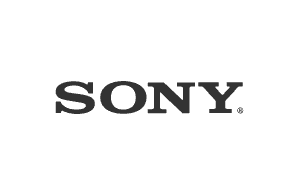Sony slashes profits forcast as battery recall hits earnings
Problems manufacturing Blu-Ray drives combined with global concern over laptop battery safety are hurting Sony's fragile business recovery

Sony has slashed its profit outlook by 62 per cent because of battery recall costs and a larger loss at its game unit, missing market expectations by a wide mark and putting its nascent recovery in doubt.
The revision follows a series of setbacks for the electronics giant, including recalls of up to 9.6 million Sony-made laptop PC batteries by Dell and other PC makers and a delay in the European launch of its video game console, PlayStation 3 (PS3).
Sony cut its operating profit target for the year to March to 50 billion yen ($420.7 million) from its July estimate of 130 billion yen. That compares with a consensus of 160.9 billion yen in a poll of 20 analysts by Reuters Estimates.
The electronics and entertainment conglomerate also cut its net profit forecast by 38 percent to 80 billion yen.
The world's second-largest consumer electronics maker will set aside 51 billion yen for costs related to the recall of its batteries, which in rare cases could catch fire from overheating.
"The size of the downward revision is bigger than expected," said Masahiko Ishino, an analyst at Mitsubishi UFJ Securities. "The battery recall costs were within expectations, but the revision highlights the troubles of its game unit."
Sony expects losses at its game unit to nearly double from its initial estimate to 200 billion yen for the year to March after it cut the price of a model of the PS3 with a 20-gigabyte hard disk drive by 20 percent in Japan to spur demand.
Get the ITPro. daily newsletter
Receive our latest news, industry updates, featured resources and more. Sign up today to receive our FREE report on AI cyber crime & security - newly updated for 2024.
Sony plans to launch the PS3 in November in Japan and North America, setting the stage for a three-way showdown with Nintendo's forthcoming Wii and Microsoft's Xbox 360 in the nearly $30 billion video game market.
Sony's game unit was also hit by slower-than-expected sales of PlayStation Portable (PSP) handheld players. The company lowered its PSP shipment target for the year ending March 31 by 25 percent to 9 million units.
In stark contrast, rival Nintendo earlier this month raised the sales target of its DS portable machines to 20 million units from 17 million for the current business year.
Sony shares in Frankfurt traded at 30.67 euros, which translates to about 4,539 yen, down 5.2 percent from Tokyo's close of 4,790 yen. The announcement came after the Tokyo market closed.
The deep profit revision comes as a setback for Ryoji Chubachi and Howard Stringer, who have experienced mostly success since becoming Sony's president and chief executive in June 2005.
Stringer and Chubachi moved swiftly to slash jobs, sell off non-core assets and they seemed to have the company on the right track. Sony had become more efficient and even introduced a handful of smash hits such as its Bravia brand LCD televisions.
"In the growth-driving areas of LCD TVs and digital cameras, we have a string of hit products," Sony Chief Financial Officer Nobuyuki Oneda told a news conference on the forecast revision.
"We expect a loss in the PS3 business this year. But the US and Japan launches in November and European release in March are expected to help it become a global game platform. I believe we can achieve a large-scale profit recovery next year."
Sony aims to turn both the PS3 business and overall game division profitable in the year starting April 2007, he said.
The battery recalls and the delay of the PS3 launch in Europe shook consumer confidence in Sony's technological prowess and raised concern about its reputation as a top-notch manufacturer.
In a move to possibly stoke investor worries about further downward adjustments to forecasts, Sony said the latest revision does not factor in potential costs of any legal action that might arise from the global battery recall.
Toshiba, the world's third-largest notebook PC maker recalling 830,000 Sony batteries, said on Monday it may seek compensation from Sony for possible damage to its brand name and loss of potential sales due to the recall.
(Additional reporting by Edwina Gibbs and Aiko Wakao)




